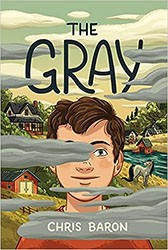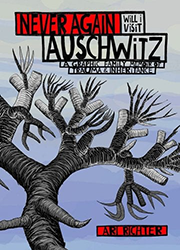Jeska Verstegen is a descendant of Dutch-Jewish publisher Emmanuel Querido, murdered by the Nazis in 1943. Her new work of historical fiction, which examines the pain of repressed trauma, is closely based on her family’s experience. Growing up in the Netherlands with a mother who survived the German occupation but lost many relatives, eleven-year-old Jeska feels caught in a web of inconsistent events. Her mother becomes angry easily. Her beloved grandmother, Bomma, is physically and mentally declining but evidently needs to reveal hidden parts of her past. Seemingly normal daily events are tinged with sadness. Verstegen’s honesty, and the lyrical beauty of this translation from the Dutch by Bill Nagelkerke, elevate her universal story about children’s need for dialogue with those who care for them.
As portrayed in the novel, postwar Dutch life is marked by relative silence about their nation’s role during the Holocaust. When Jeska’s teacher begins to teach about this era, the fact that there are Jewish students in their school is ignored. When her own parents and those of a classmate exempt their children from listening to a book about the war, passive acceptance takes the place of questioning this decision. Children with disabilities, and even a girl who fears without reason that she is ill, are clearly avoided. Jeska is sensitive and aware of her environment, but she is unable to put together the pieces of the puzzling silences in her home and her community. Often, she resorts to metaphor, picturing her school as “a kind of monster with a belly full of children,” and representing her parents’ disturbing silence as a “magnet,” drawing her to find out the truth.
Readers may be familiar with the history of Jews in the Netherlands through the life of Anne Frank, whose diary plays a role in the novel when Jeska’s friend secretly shares a copy with her. There were both collaborators and protectors among the Dutch, but the reality of both has been quietly concealed. When Jeska tries to learn more in her local library, the librarian discourages her pursuit. Bomma is her only possible link to the past. As the elderly woman pages through a family album, Jeska is compelled to find out the cause of her grandmother’s grief and guilt as she remembers relatives who did not survive. Jeska’s determination is understated but powerful, as she gradually realizes that no one will support her as she pursues the truth.
There are no easy resolutions in the novel and no dramatic scene of confrontation. Jeska’s love for her grandmother is a source of strength. The kindness of friends and extended family members also relieve her solitude. Yet her mother’s inability to come to terms with the past, passively reinforced by Jeska’s father, leaves a gap in Jeska’s life. Her profound strength is both sad and inspiring. Realizing that the past leaves scars, but that remembering the past is “like a thread in a piece of knitting,” keeps Jeska close to her grandmother and to those family members who perished. The quiet impact of this unusual book will make a lasting impression.
An afterword explaining the story’s sources is included.
Emily Schneider writes about literature, feminism, and culture for Tablet, The Forward, The Horn Book, and other publications, and writes about children’s books on her blog. She has a Ph.D. in Romance Languages and Literatures.





